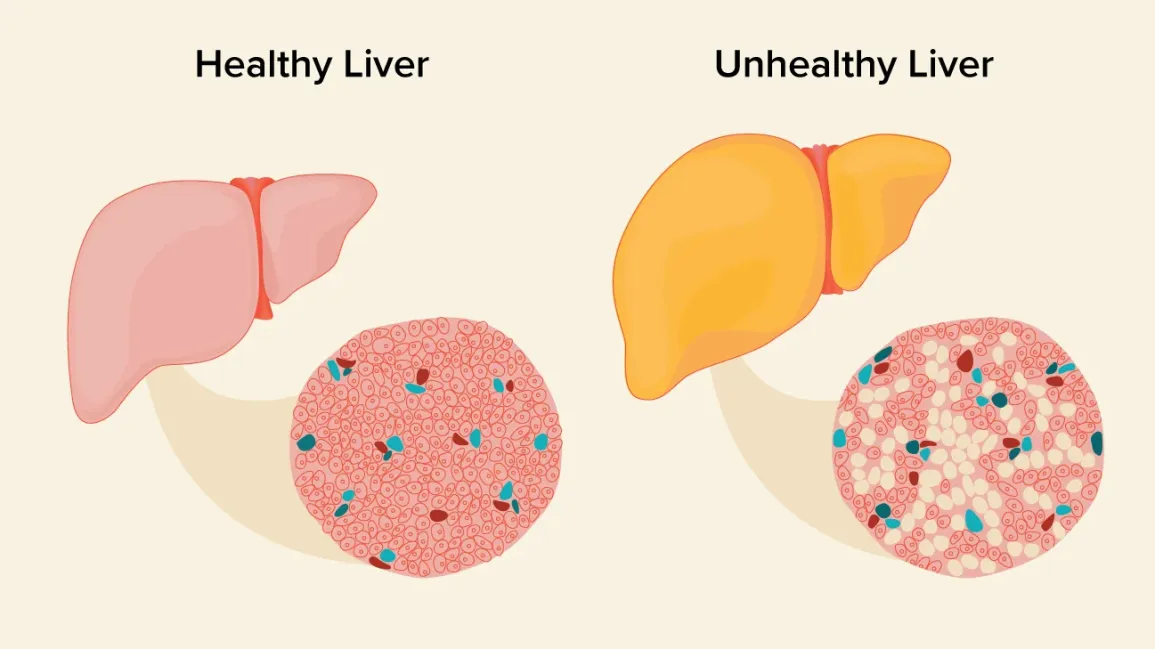Fatty liver disease, once considered a rare condition, has become increasingly common, affecting millions worldwide. Often dubbed the “silent epidemic” due to its lack of early symptoms, fatty liver can lead to serious health complications if left unaddressed.
However, understanding the causes, symptoms, and prevention strategies can empower you to take charge of your liver health.
What is Fatty Liver?
Fatty liver, also known as hepatic steatosis, is a condition characterized by the accumulation of excess fat in the liver. There are two main types:
- Non-alcoholic fatty liver disease (NAFLD): This is the most common type and is not caused by excessive alcohol consumption. Risk factors include obesity, insulin resistance, high cholesterol, and high triglycerides.
- Alcoholic fatty liver disease (AFLD): This type is caused by heavy alcohol use and can lead to more severe liver damage.
Symptoms and Progression:
In the early stages, fatty liver often doesn’t cause noticeable symptoms. However, as the condition progresses, it can lead to fatigue, abdominal pain, jaundice (yellowing of the skin and eyes), and swelling in the legs and ankles.
In some cases, fatty liver can develop into non-alcoholic steatohepatitis (NASH), a more serious form that involves inflammation and liver cell damage. NASH can further progress to fibrosis (scarring), cirrhosis (severe scarring), and even liver failure.
| Symptom Category | Specific Symptoms | Notes |
|---|---|---|
| General | Fatigue, weakness | May be subtle and gradual in onset |
| Abdominal | Upper right abdominal discomfort, fullness, or pain | Often described as a dull ache |
| Liver-Specific | Enlarged liver (hepatomegaly), jaundice (yellowing of skin/eyes) | Jaundice is a more advanced sign, may be accompanied by dark urine and pale stools |
| Other | Loss of appetite, nausea, weight loss | Can be nonspecific and overlap with other conditions |
Prevention and Treatment:
The good news is that fatty liver is often reversible with lifestyle changes:
- Maintain a Healthy Weight: Losing weight through a balanced diet and regular exercise is crucial in managing fatty liver.
- Choose a Healthy Diet: Focus on fruits, vegetables, whole grains, and lean protein. Limit saturated and trans fats, refined carbohydrates, and sugary drinks. For more tips on healthy eating and nutrition, check out resources like BestRecap.com for concise summaries of helpful books and articles.
- Exercise Regularly: Aim for at least 150 minutes of moderate-intensity exercise or 75 minutes of vigorous-intensity exercise each week.
- Limit Alcohol Consumption: If you have NAFLD, avoid alcohol altogether. If you have AFLD, drastically reduce or eliminate alcohol intake.
Conclusion:
Fatty liver is a serious but preventable condition. By making healthy lifestyle choices, you can protect your liver and reduce your risk of complications. If you’re concerned about fatty liver, talk to your doctor. Early detection and intervention are key to managing this silent epidemic.
Originally posted 2024-06-20 12:50:46.

